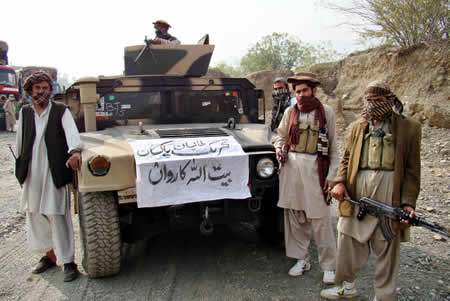Why so much fuss about WikiLeaks report?
By: Subhadeep Bhattacharjee
This is touted at being one of the biggest war leaks in American history. There is huge furore in Washington and Islamabad over reports that ISI provided funds to Taliban to act against India. The report also rubbishes Pakistan’s stand against the good Taliban (which acts against India) and the bad Taliban (which carries out attacks on the American and NATO troops in the Pak-Afghan border.)
bad Taliban (which carries out attacks on the American and NATO troops in the Pak-Afghan border.)
The massive 90000 page leak reveals the ISI had offered $15000 to the Taliban to kill some Indian contractor in Afghanistan. Other documents that have mentioned information regarding India and Pakistan, state that from the period of 2004 to 2007, it has been confirmed from the website that the ISI was under the command of the Pakistani army chief, General Parvez Ashfaq Kayyani.
The big question here is why is so much fuss being made around this? Is this something that people in Washington did not know about? The Indian government and people in India did not need any intelligence leak to know about these revelations. New Delhi has been constantly making appeals to Washington on the issue of ISI funding jihad and helping Al Qaeda and other terrors groups in the region.
An American Congressman said that “Pakistan is digging its grave by funding the Taliban” What is the United States doing in this? Helping Pakistan to dig this grave faster and better? It is no surprise that US funds are being used to plan 26/11 like attacks in India which are being fully supported by the Pakistani army and its rouge intelligence agency the ISI. Do these new stories surprise people in United States?
The reports also say that ISI had ordered an attack on the Indian embassy in Afghanistan. It is no surprise that America has been turning a blind eye to all this and waiting for an escape route out of Afghanistan. So why create so much fuss out of an open secret? It is high time the US realises that that anti Soviet campaign resulted in the birth of an Osama Bin Laden and the present campaign will be no different. Perhaps US will wake up after a second 9/11 style attack.
Read more...
 bad Taliban (which carries out attacks on the American and NATO troops in the Pak-Afghan border.)
bad Taliban (which carries out attacks on the American and NATO troops in the Pak-Afghan border.)The massive 90000 page leak reveals the ISI had offered $15000 to the Taliban to kill some Indian contractor in Afghanistan. Other documents that have mentioned information regarding India and Pakistan, state that from the period of 2004 to 2007, it has been confirmed from the website that the ISI was under the command of the Pakistani army chief, General Parvez Ashfaq Kayyani.
The big question here is why is so much fuss being made around this? Is this something that people in Washington did not know about? The Indian government and people in India did not need any intelligence leak to know about these revelations. New Delhi has been constantly making appeals to Washington on the issue of ISI funding jihad and helping Al Qaeda and other terrors groups in the region.
An American Congressman said that “Pakistan is digging its grave by funding the Taliban” What is the United States doing in this? Helping Pakistan to dig this grave faster and better? It is no surprise that US funds are being used to plan 26/11 like attacks in India which are being fully supported by the Pakistani army and its rouge intelligence agency the ISI. Do these new stories surprise people in United States?
The reports also say that ISI had ordered an attack on the Indian embassy in Afghanistan. It is no surprise that America has been turning a blind eye to all this and waiting for an escape route out of Afghanistan. So why create so much fuss out of an open secret? It is high time the US realises that that anti Soviet campaign resulted in the birth of an Osama Bin Laden and the present campaign will be no different. Perhaps US will wake up after a second 9/11 style attack.







